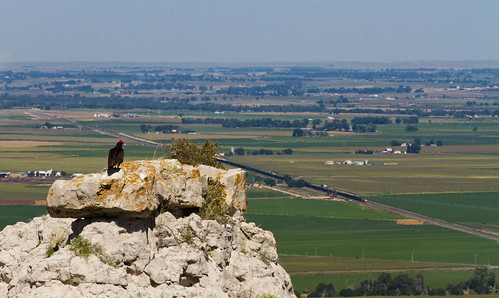
The Crusader has steely hair in the closest female equivalent to a crew cut. Her skin, which is stretched tightly over a powerful chin, is tan and leathery. She has gray eyes that burn like twin carbon-arc lights in dark sockets—they burn with the fervor of temperance. Temperance crusaders may seem as archaic as railroads but, like their locomotive counterparts, they survived the 20th century intact, if not especially visible. "My hardest decision? Going against the flow." Her eyes flash. "I am the daughter of a Lutheran minister, grew up in the church. I knew that world was small and left home when I was eighteen. Went straight to LA. Lived on the streets. You learn a lot out there, what the real world is about, how people actually behave." Today, several decades later, she runs a small consignment shop out of a garage in Scottsbluff, Nebraska. Frank Sinatra's voice croons out of an old monophonic Zenith radio and avocado green shelves support an array of tarnished silver utensils, floral teapots, and Hummel dolls. It was only in the moral swamp of Los Angeles that the Crusader learned to understand the evils of alcohol and drugs, to viscerally feel the truth she had learned as a child. "This is a corrupt town, a sinful town. Did you see main street back there? Nothing but bars, each one full of people ruining their lives. I've been fighting to have them all closed. Everybody on the town council knows me. The sheriff knows me. They hate me. I'm someone who isn't loved in this town, but you have to go against the flow... because it's the right thing to do." She lights a cigarette. "There's been a little progress here and there, but they won't stop fighting. They come at me from time to time, but I get my hammer and I pound them right back down." She swings her arm and destroys something with an invisible sledge. She is like the Tommy of Whack-a-Mole. A sneer passes quickly across her mouth, lips pulling back to reveal perfect, if somewhat yellow, teeth. "They know they can't be rid of me." Yet something makes her too wary to speak on record.


